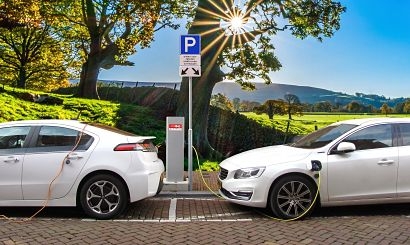
Sales of EVs are increasing rapidly across Europe but drivers still regularly encounter problems in finding appropriate charging options, limiting the ease of use of their vehicles and potentially posing a barrier to the increase in uptake of EVs.
Working with 32 partners across 11 European countries, the EU Horizon 2020 funded project will bring together key stakeholders help to offer an enhanced EV charging experience and speed up the transition to electric vehicles across Europe.
As the only UK partner involved, the University of Sussex’s role in the project will be to apply optimisation and modelling techniques to identify the most effective ways to improve the EV charging experience. The move to electric vehicles, that need charging, requires a change in behaviour coupled with new interactions with the electricity networks that can provide a potential barrier to the widespread uptake of EVs.
“Our work will draw from a wide variety of pilot projects across Europe to combine technical solutions with studies of user behaviour to address the challenge of improving the overall EV charging experience” said Peter Fussey, Industrial Research Professor at the University of Sussex’s School of Engineering and Informatics.
Dr. Angelos Amditis, eCharge4Drivers Project Coordinator and Research Director of ICCS, added that the eCharge4Drivers project brings together 32 of the most important European electromobility actors with the aim to develop appropriate solutions to significantly improve the overall user experience when charging electric vehicles, and thus promoting the wide adoption of electromobility, following the ambitions of the European Green Deal towards a zero-emission transport system.
The eCharge4Drivers project aims to substantially improve the EV charging experience within cities and for long journeys. It will offer an enhanced experience for EV drivers by providing more sophisticated services to users before, during and after the charging process, including services for smart charging.
The project, which runs until May 2024, will demonstrate additional convenient charging options within cities, a mobile charging service, charge points at lamp posts and networks of battery-swapping stations for LEVs.
By capturing users’ perceptions and expectations on the various charging options and their mobility and parking habits, eCharge4Drivers will develop and demonstrate pilot projects at ten sites across Europe, including metropolitan areas and Trans-European Transport Network (TEN-T) corridors.
This project has received funding from the European Union’s Horizon 2020 research and innovation programme under grant agreement No. 875131 (Innovation Action).
For additional information:

